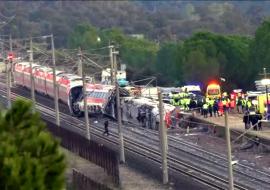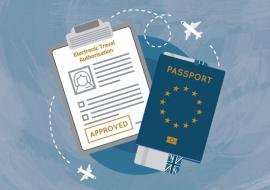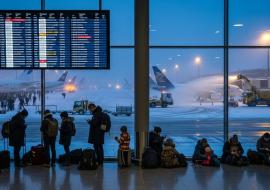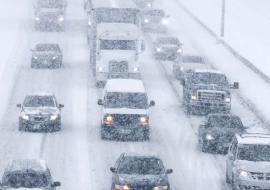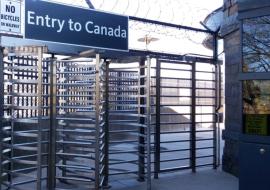UB40 Remakes 1998 Smash Hit to Support Hurricane Recovery
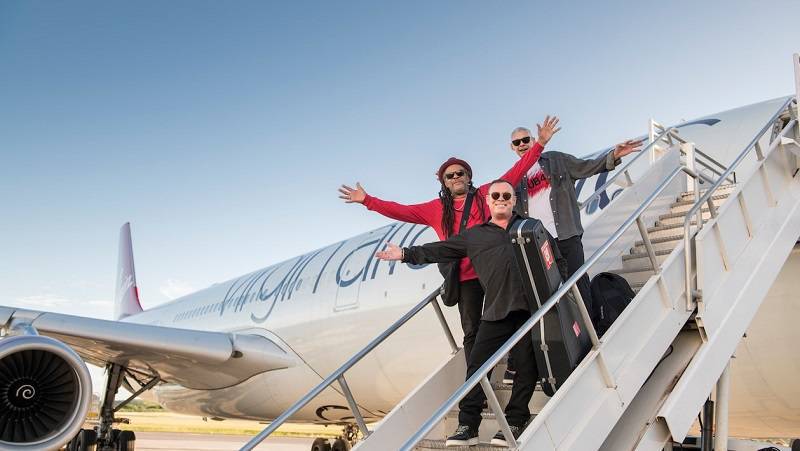
Birmingham reggae legends UB40 are performing a fourth rendition of their 1998 hit Come Back Darling. A rum-punch-lubricated crowd consisting of local restauranteurs, Virgin Atlantic flight crew, Caribbean tourism officials and the Antiguan prime minister are thrusting up against the open-air stage as if it was the first time.
The venue of choice is Mary’s Outhouse, a hilltop shack serving rum punch and jerk chicken, and we’re all here to be in a music video gunning to be the Christmas number one for 2017. As post-hurricane recovery efforts go, this is a deliciously barmy campaign to be a part of.
“We jumped at the chance to come out to the Caribbean and get involved in a campaign like this, because we saw first-hand the rolling news coverage calling the area a disaster zone, and now nobody wants to come to the Caribbean this winter because they think there’s nothing left,” says UB40 front man Ali Campbell.
“We genuinely love the Caribbean, and we’re here to encourage people to come back.”
Virgin Holidays CEO Joe Thompson can’t recall who exactly cooked up the idea of getting UB40 out to Antigua to re-release their 1990s hit Come Back Darling as a potential Christmas number one - and lure tourists back to the region. But it stemmed from an urgent need to intervene and prevent a natural disaster evolving into an economic disaster.
“Sure, this is quirky, and off-the-wall, but we needed something that would cut through the rolling news coverage about devastation in the Caribbean,” says Thompson.
“The island nations of the Caribbean have gone through a very challenging hurricane season in 2017, but the blanket media coverage of Hurricane Irma and Maria for days after they struck in September of end has left a misconception that much larger parts of the Caribbean were affected more than they were.
"Most of our properties were unaffected and are fully open, but they’re seeing reduced bookings.”
Antigua is one of the most tourism-dependent countries in the world, making up 65 percent of the country’s GDP. Last year the Caribbean as a whole welcomed 29 million tourists, spending nearly £27 billion.
With the exception of Americans, British tourists make up the largest visitor demographic. But a recent survey found that half of British tourists aren’t planning to return to the Caribbean this winter, believing the whole region to be badly storm damaged.
In such a tourism-dependent region, a reduction in visitor numbers would have a financially devastating impact, affecting everyone from hoteliers to street food vendors.
“There is major rebuilding work to do, and the last thing local governments need now is an economic downturn associated with a reduction in tourism,” says Thompson. “Having been part of creating that industry, we have to do the right thing by the communities who have become very reliant on tourism.”
Hurricane Maria was the tenth most powerful Atlantic storm on record, and although many tourism hotspots, including Barbados, Jamaica and St Lucia, escaped unscathed, other island nations were devastated.
Hurricane Irma left ten Cubans dead, Irma and Maria collapsed the infrastructure, electricity, and communications lines of the British Virgin Islands, one third of Dutch St. Martin’s buildings were ruined, and in the US Virgin Islands many people remain without power.
The rugged island of Dominica, which I visited last year, was ravaged, leaving 27 people dead, more than 50 people missing, and 90 per cent of buildings damaged or destroyed.
Meanwhile, Puerto Rico’s death toll continues to climb and the island remains a Federal Disaster Zone. Officially 64 people lost their lives but an analysis by the New York Times puts the count much higher.
Source: The Telegraph








